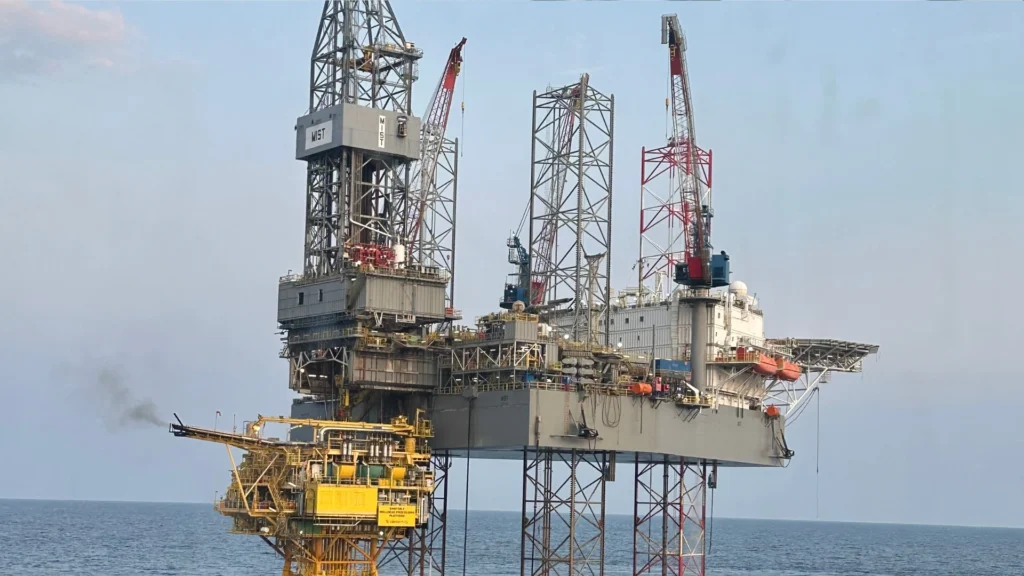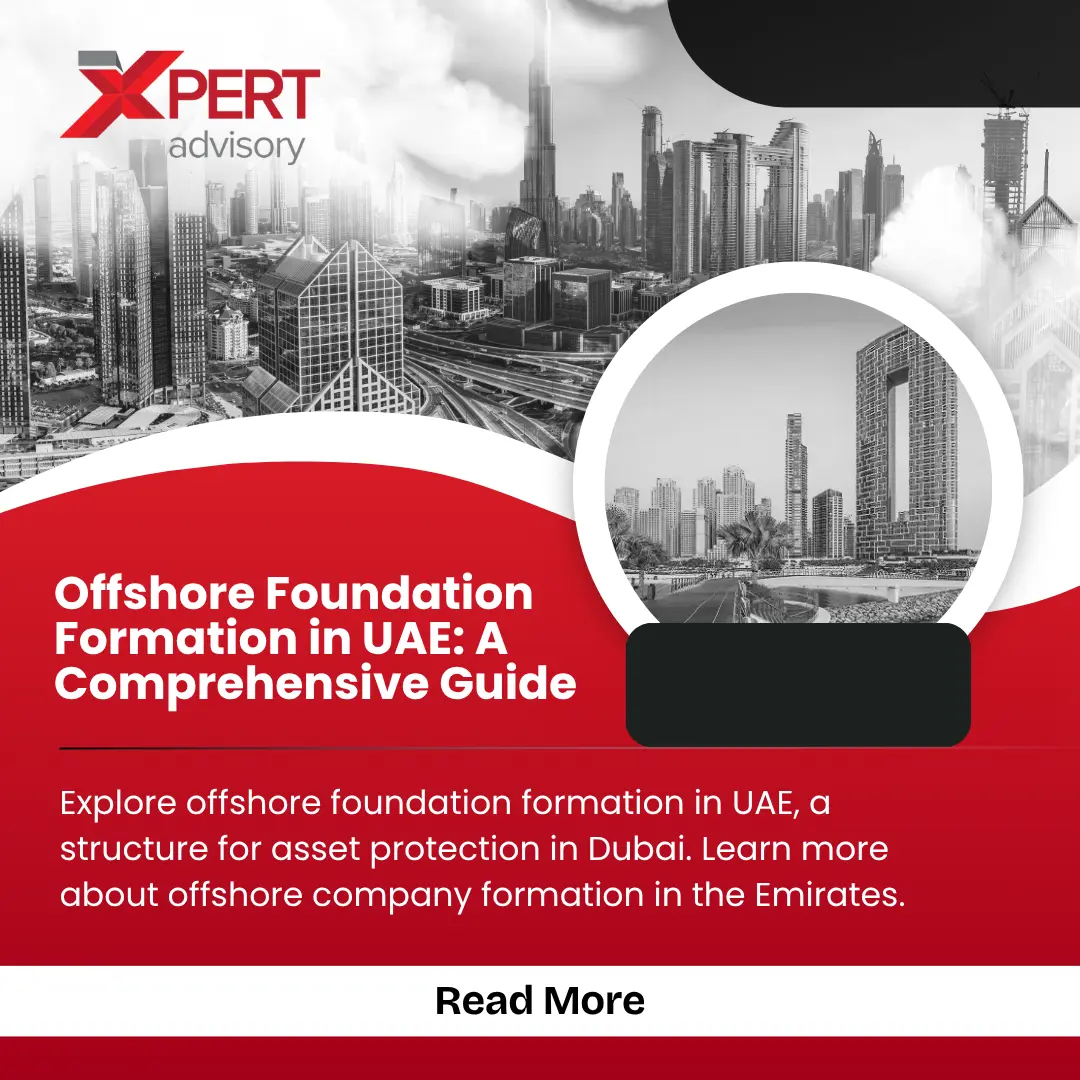The United Arab Emirates (UAE) offers business owners the chance to execute company practices at a worldwide level. Here’s when offshore foundations in the UAE have become the cornerstone of global wealth structuring, asset protection, tax-efficient operations, and exemptions, etc. The popularity of offshore foundations in zones like Jebel Ali Free Zone Authority (JAFZA), Ras Al Khaimah International Corporate Center (RAK ICC), Abu Dhabi Global Market (ADGM), and Dubai International Financial Center (DIFC) is on the rise.
Let us guide you through offshore foundation formation in UAE– what it is and how to set up one for yourself. Read on —
What Is An Offshore Foundation in UAE?

An offshore foundation was created to retain, administer, and safeguard a variety of assets. It is a separate legal entity from its founders. It is unique in that it combines trusts and corporate characteristics, such as legal identity, to provide asset protection for a specific group of beneficiaries or goals. UAE offshore companies can sign contracts, hold assets, and function independently in the UAE, giving founders complete authority while eliminating direct personal ownership.
A foundation is run by a charter and a council; it has neither shareholders nor members, in contrast to international businesses with shareholders or trusts that depend on trustees. It can be applied to corporate holding structures, philanthropy, estate planning, family succession, and personal wealth management.
Key Characteristics of an Offshore Foundation Company
There is a standard structure of an offshore company formation along with a few characteristic traits. These are:
The Founder: The founder is the individual or entity who establishes the foundation, outlining its provisions and transferring the assets to it.
Foundation Council: The Foundation Council is a type of company of three or more people who are in charge of running the foundation in accordance with its charter. On behalf of the foundation, they sign contracts and decide which investments to make.
The Charter: An openly accessible document outlining the foundation’s goals, structure, assets, and responsibilities.
By-laws and Regulations: Privately published guidelines that govern the daily activities, responsibilities of council members, and regulations for recipients.
Guardian/Protector (Optional): A person or organization that makes sure the council runs the foundation following its mission and charter.
Recipients: People or organizations that, following the foundation’s regulations, profit from the assets it owns. In order to control and profit from assets without having direct legal ownership, the founder may also designate themself as a beneficiary.
What are The Advantages of Offshore Foundation Formation in UAE?
There are several advantages to forming an offshore formation in the United Arab Emirates. These include:
- You have complete privacy
- There is no fear of foreign judgments
- There is the concept of long-term planning
- Offers complete wealth protection
- Planning for the succession of assets, businesses, and personal estates
- Making an estate plan to prevent forced heirship
- Lowering one’s personal wealth to reduce the possibility of compensation or other legal damages
- Removing taxes associated with property transfers
- Extending the time horizon for potential investments by purchasing assets through a “person” other than oneself
- Accumulating revenue from a portfolio (interest, royalties, dividends, returns, annuities)
- Acknowledged in every civil law and common law jurisdiction.
- Planning for inheritance taxes
- Voting and economic gains are kept apart.
- Tax advantages
- Plans for employee share options
What Is The Primary Function Of an Offshore Foundation?
An offshore foundation formation in UAE serves basic functions, including:
- Structuring wealth and planning for succession
- Handling family business and finances
- Protecting assets from creditors
- Charitable motives
- Inheritance management and estate planning
- International income tax optimization
The Best UAE Jurisdictions for Offshore Foundations
To set up a foundation, you can choose from these major jurisdictions:
JAFZA
- JAFZA offshore companies are well-known for succession planning and asset management.
- Prefers asset longevity and secrecy.
- Adaptable organizational structures
RAK ICC
- RAK offshore company is well-known for its succession planning, secrecy, and asset protection.
- No claims against foundation assets from foreign courts
- Easy and fast setup procedure
ADGM/ DIFC
- International legal protection criteria for ADGM & DIFC companies in Dubai or Abu Dhabi
- Top locations for family estate planning
- Acknowledges foundation independence and asset segregation
Steps For Offshore Foundation Formation in the UAE

Follow these steps if you want to successfully form an offshore foundation in the Emirates:
Assess The Objectives And Suitability
- A company must clearly state the goal: philanthropy, holding structure, succession, asset preservation, or avoiding levied taxes.
- Verify that you are following the foreign entity laws of your home country, since certain jurisdictions prohibit the incorporation of foreign corporations.
Choose A Jurisdiction
Each of these locations—JAFZA, RAK ICC, ADGM, DIFC, or Ajman—has advantages for certain purposes (privacy, cost, asset kind, and global reputation).
Speak With Expert Consultants
- For establishing an offshore company, appoint a registered agent for assistance with laws, taxes, and regulations.
- Assists in navigating intricate bylaws, structures, and compliance standards.
Name Of Reserve Foundation
- Send suggested names to the appropriate regulatory body for approval.
- Names must adhere to UAE regulations and usually finish in “Foundation”, “Ltd,” or “LLC” (Limited Liability Company).
Draft Regulations And Charter
- Describe the foundation’s asset kinds, governance guidelines, beneficiary rights, and purpose (public, private, or philanthropic).
- Draft and submit the Memorandum of Association (MOA) documentation.
- Association Articles (AOA)
- Proof of identity and address for directors and council members
- Evidence of a UAE-registered address
- CVs and bank reference letters, if necessary
Fulfill Fee And Capital Requirements
- Minimum paid-up capital and registration fees vary by jurisdiction.
- It is necessary to budget for administration and renewal expenses each year.
Secure Approvals From Regulators
- The foundation authority will communicate with expert consultants.
- Depending on the level of complexity, allow two to four weeks for clearance.
Safe Offshore Bank Account
Create an offshore foundation bank account to manage transactions, hold money, and transfer assets.
Transfer Assets
Transfer assets to the foundation for management and protection, such as real estate, stocks, money, etc.
Start Operations
The foundation can function lawfully, own property, invest, and carry out its assigned mission.
Key Documents Required For Application
You must submit all required documents to complete the application process. The important documents are mentioned below:
- Memorandum & Articles of Association (MOA/AOA)
- Identity/address proof of council members & directors
- Proof of registered address in the UAE (utility bill, tenancy contract)
- Bank reference letter
- CVs/resumes of founding members
- Charter and internal regulations
- Declaration of purpose and beneficiary details
What Are The Types of Offshore Foundation Companies in the UAE?
These are the commonly known and popular offshore foundation companies in the UAE:
- Public Foundation Company
- Private Foundation Company
- Charitable Companies
- Family Foundation Company
- Corporate Foundation
- Community Foundation
Final Takeaway
For high-net-worth people, entrepreneurs, and international families, establishing an offshore foundation in the United Arab Emirates is a calculated decision. The UAE remains a top offshore structure choice with specific advantages like asset protection, confidentiality, smooth succession, and unparalleled tax efficiency.
Are You Planning to Form Offshore Foundations in the UAE?
It’s critical to approach foundation formation with a thorough awareness of legal and structural requirements, given the constantly changing legislation and distinct jurisdictional advantages. Having the correct advice is important whether you’re looking for organizational control or long-term asset preservation. In order to facilitate informed decision-making, we at Xpert Advisory keep up with the most recent offshore frameworks. To gain a deeper knowledge, keep researching or get in touch with us if you ever need help figuring out what to do next.
FAQs
Are Foreigners Allowed To Own and Control Offshore Foundations in UAE?
Yes, the UAE allows 100% foreign ownership of offshore foundations. They don’t require any local sponsor or partner as well.
Are Legislation About Economic Substance Applicable To Offshore Foundations In The UAE?
Depending on the nature of their operations, offshore foundations may be required to abide by the Economic Substance Regulations (ESR) in several UAE jurisdictions.
Do Offshore Foundations Guarantee Confidentiality?
Yes, the UAE jurisdictions offer offshore foundations with a high level of confidentiality. No information about the council members, founders, or beneficiaries is publicly available.


